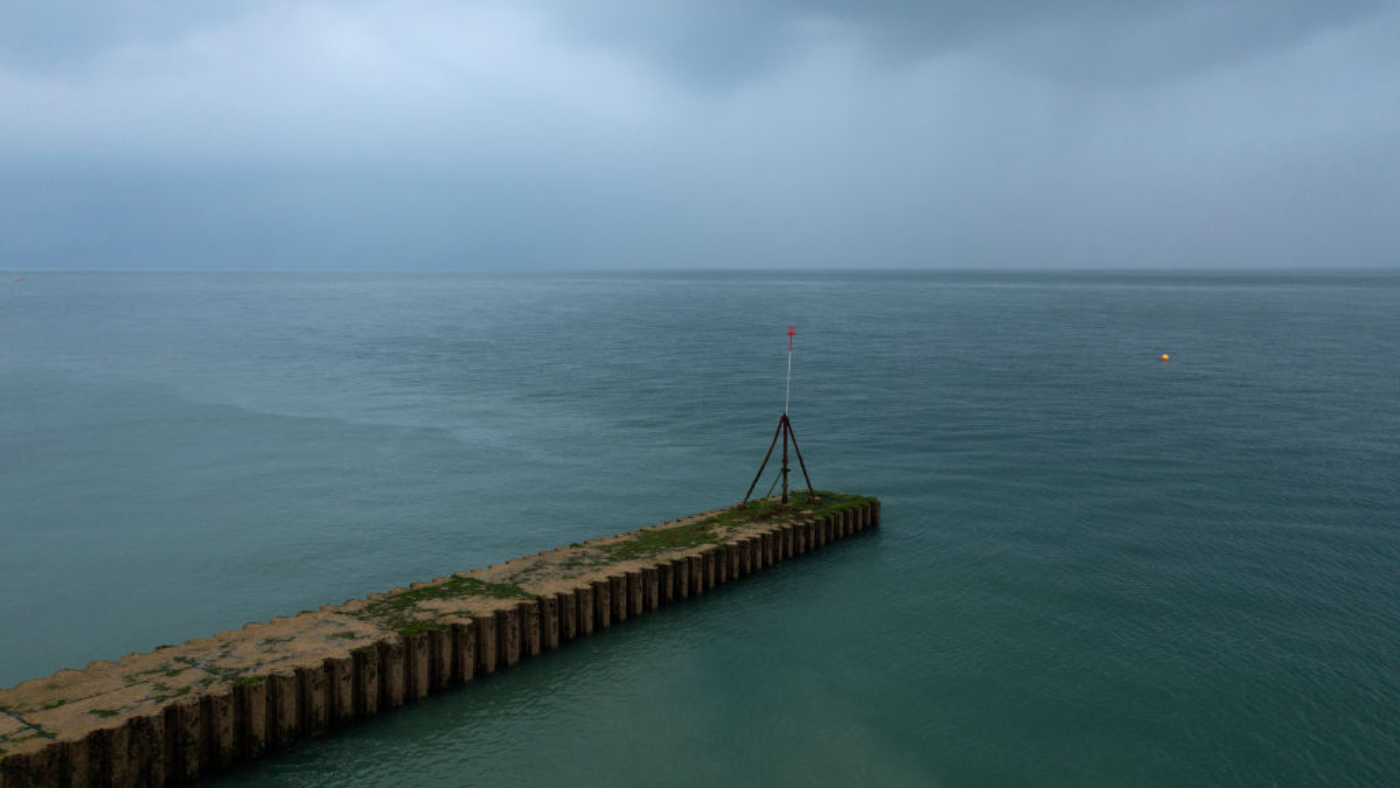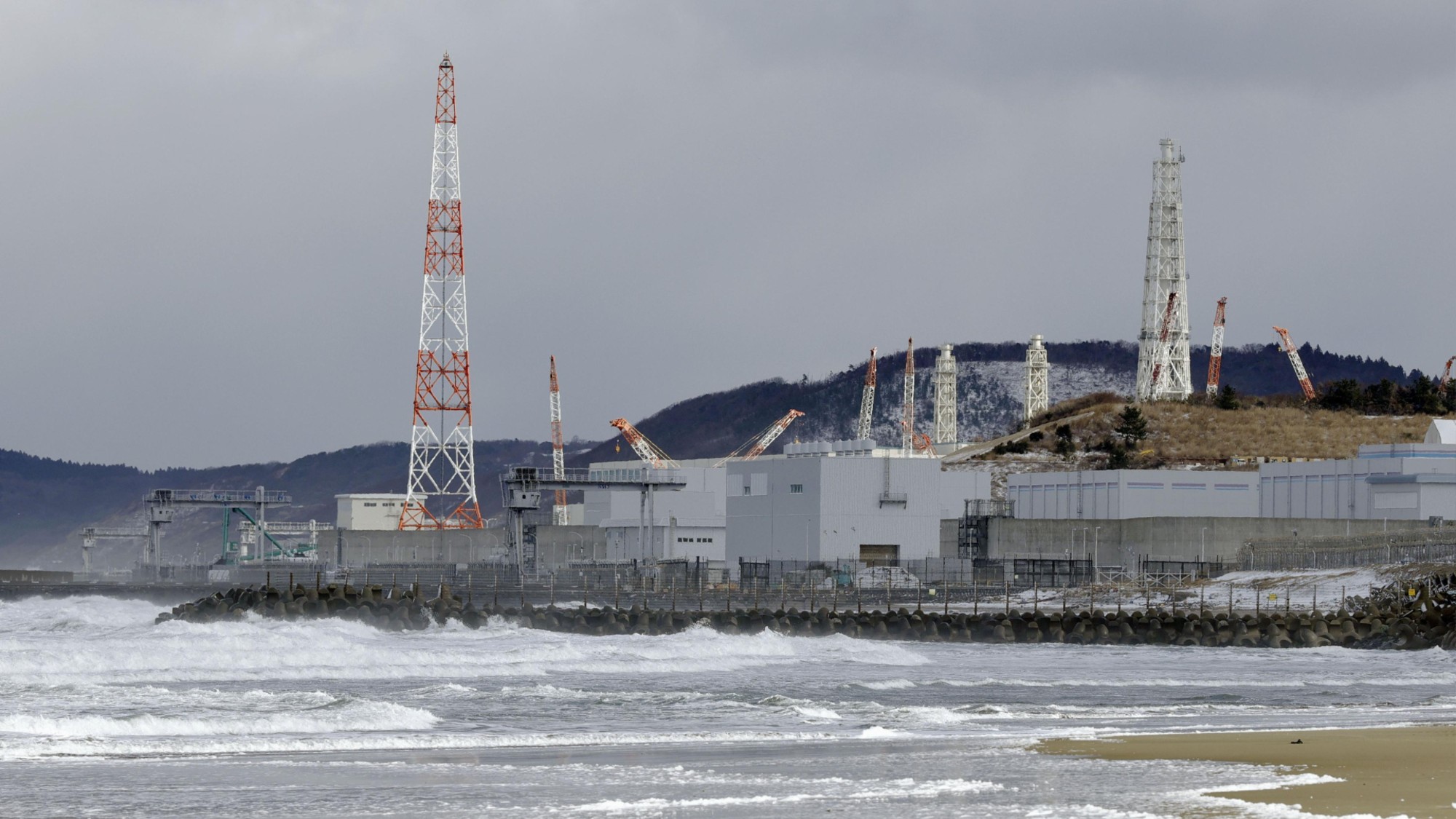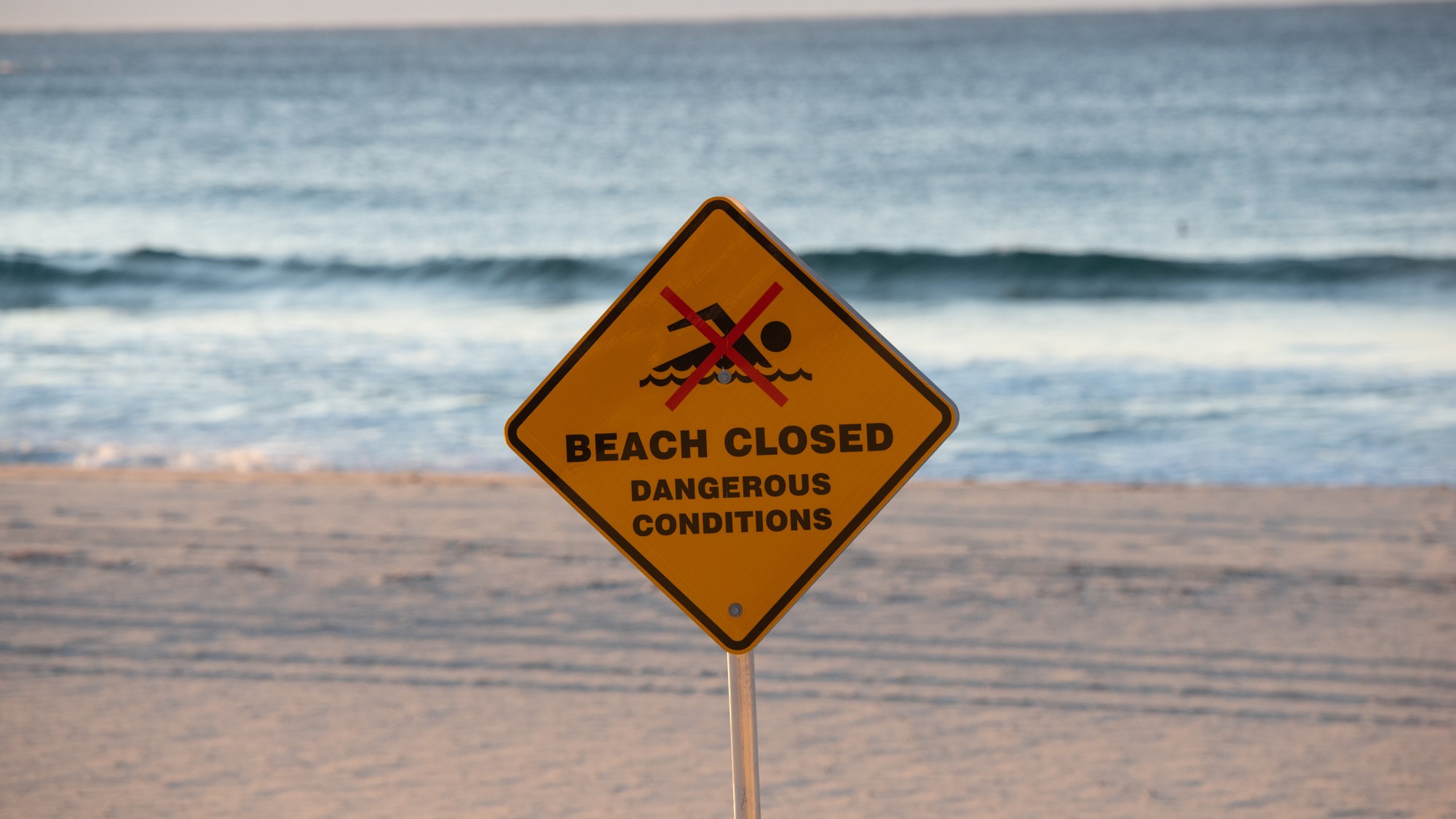Is it dangerous to swim off Britain’s beaches?
Beachgoers warned not to enter water at up to 50 locations after sewage pumped into sea

A free daily email with the biggest news stories of the day – and the best features from TheWeek.com
You are now subscribed
Your newsletter sign-up was successful
Would-be swimmers are being warned to stay out of the water after raw sewage was released into the sea near scores of British beaches this week.
Data gathered by conservation charity Surfers Against Sewage (SAS) suggests that the water at around 50 beaches may be unsafe to enter “due to the risk posed by sewage” pumped into the sea by water companies, said Time Out.
The warnings come “as millions of Britons head to the coast for a last trip away before the end of the summer holidays”, said the Daily Mail.
The Week
Escape your echo chamber. Get the facts behind the news, plus analysis from multiple perspectives.

Sign up for The Week's Free Newsletters
From our morning news briefing to a weekly Good News Newsletter, get the best of The Week delivered directly to your inbox.
From our morning news briefing to a weekly Good News Newsletter, get the best of The Week delivered directly to your inbox.
What’s happened?
An interactive map on the SAS site highlights where pollution risk warnings are still in place, with a high proportion being on the south coast of England. A similar map produced by the Environment Agency highlights far fewer beaches where swimming is not advised.
Water companies are allowed to discharge effluent when sewer systems are at risk of being “overwhelmed”, said the Mail. And heavy rainfall this week did just that, leading to “huge amounts” of sewage “being pumped into the sea”.
Britain’s sewer system is “still largely Victorian” and “becomes unable to cope when there is too much rainwater”, the paper continued, and warnings of flash floods had been in place as thunderstorms were forecast after weeks of hot weather.
But SAS’s chief executive Hugo Tagholm argued that “the dispensation was being abused”, said The Times. Tagholm told GB News that water companies “seem only to be geared up for dealing with mild, overcast, drizzly weather” and criticised companies for not “future-proofing” their systems.
A free daily email with the biggest news stories of the day – and the best features from TheWeek.com
In 2020, the Environment Agency reported that there were more than 400,000 “sewage overflows” into rivers and the sea, amounting to some 3.1 million hours of pollution, according to The Guardian. SAS has “spent years urging politicians to introduce legal duty on water companies” to stop the practice, said The Sun.
Video footage filmed at Seaford in East Sussex this week shows “dark grey water” being pumped into the sea “just feet away from the popular nearby beach”, said The Mirror. Southend-on-Sea in Essex and Newquay in Cornwall were “particularly badly affected” with beaches at both towns being closed yesterday.
Analysis by The Telegraph earlier this year found that water companies have been releasing raw sewage into rivers more than 1,000 times a day and at times when there was not heavy rainfall.
These waste materials are “dangerously harmful to wildlife and the health of surfers and wild swimmers”, said the Mail. Swimmers have reported “contracting nasty bugs” such as gastroenteritis in British seas this summer.
What’s the reaction been?
Rivers campaigner and former Undertones singer Feargal Sharkey “points the ultimate finger of blame at government”, telling The New Statesman: “Drought and sewage is a physical manifestation of decades of under-investment, profiteering and failure of regulation.” He added that “ambitious regulation” and “political willpower” are “imperative”.
MPs voted against an amendment to the Environment Bill in October last year, which would have stopped companies from disposing of raw sewage in UK rivers. A statement shared by ministers who voted against the amendment said that “it would be irresponsible for any government to spend an estimated preliminary cost of anywhere between £150bn to £650bn to transform the entire sewage system”.
Twitter “erupted” with “righteous fury” in response, said the Evening Standard, and SAS’s Tagholm said there was a need for “more ambitious thinking and law that builds protected nature back into public ownership rather than leaving it to the ravages of shareholder interests”.
In June, the chief medical officer Sir Chris Whitty said that sewage being dumped in the sea was “a serious public health issue for government and regulators and it is clear that water companies are not doing enough”.
What next?
“The water industry has acknowledged that it needs to tackle pollution better,” said The Times. Southern Water has said it is “pioneering a new approach” that would mean it would not need to rely on discharges, said the BBC.
“There are signs of positive change,” said The New Statesman’s environment correspondent India Bourke. Regulator Ofwat is leading an investigation into the management of sewage treatment works, and the Environment Agency is examining compliance within sewage and wastewater treatment works.
However, the Department for Environment, Food and Rural Affairs has “quietly shelved” the publication of a strategy that was set to outline how ministers would tackle “unacceptable” levels of sewage discharge, said The Telegraph.
Any attempt at reforms now faces “an increasingly challenging external context”, with a “Europe-wide” drought and “rising water stress” leading to “increasingly fraught decisions about how competing needs should be balanced”, said Bourke.
Julia O'Driscoll is the engagement editor. She covers UK and world news, as well as writing lifestyle and travel features. She regularly appears on “The Week Unwrapped” podcast, and hosted The Week's short-form documentary podcast, “The Overview”. Julia was previously the content and social media editor at sustainability consultancy Eco-Age, where she interviewed prominent voices in sustainable fashion and climate movements. She has a master's in liberal arts from Bristol University, and spent a year studying at Charles University in Prague.
-
 Political cartoons for February 15
Political cartoons for February 15Cartoons Sunday's political cartoons include political ventriloquism, Europe in the middle, and more
-
 The broken water companies failing England and Wales
The broken water companies failing England and WalesExplainer With rising bills, deteriorating river health and a lack of investment, regulators face an uphill battle to stabilise the industry
-
 A thrilling foodie city in northern Japan
A thrilling foodie city in northern JapanThe Week Recommends The food scene here is ‘unspoilt’ and ‘fun’
-
 Fifteen years after Fukushima, is Japan right to restart its reactors?
Fifteen years after Fukushima, is Japan right to restart its reactors?Today’s Big Question Balancing safety fears against energy needs
-
 Can the world adapt to climate change?
Can the world adapt to climate change?Today's Big Question As the world gets hotter, COP30 leaders consider resilience efforts
-
 Why are flash floods in Texas so deadly?
Why are flash floods in Texas so deadly?Today's Big Question Over 100 people, including 27 girls at a summer camp, died in recent flooding
-
 What are Trump's plans for the climate?
What are Trump's plans for the climate?Today's big question Trump's America may be a lot less green
-
 Starmer vs the farmers: who will win?
Starmer vs the farmers: who will win?Today's Big Question As farmers and rural groups descend on Westminster to protest at tax changes, parallels have been drawn with the miners' strike 40 years ago
-
 Is Cop29 a 'waste of time'?
Is Cop29 a 'waste of time'?Today's Big Question World leaders stay away as spectre of Donald Trump haunts flagship UN climate summit
-
 Scientists want to zap coastlines with electricity
Scientists want to zap coastlines with electricityUnder the Radar Beaches are in for a shock
-
 Why beaches are closing across the country
Why beaches are closing across the countryThe Explainer Step away from the water!